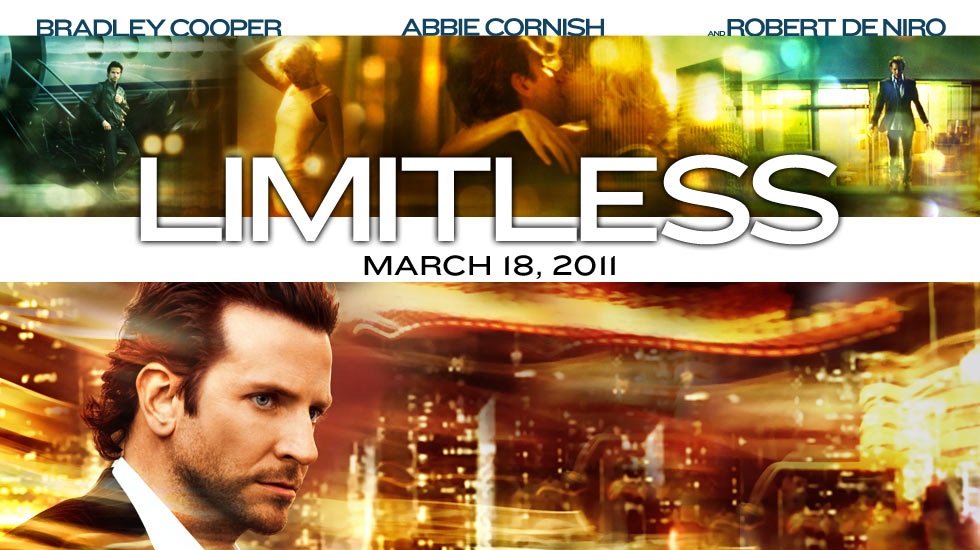I watched Bradley Cooper’s new movie, Limitless, this week. The main character Eddy gets ahold of a new drug that helps him “access” more of his brain, which makes him smarter. A lot smarter. This gives him many advantages, including the edge at his job and a second chance with his ex-girlfriend. But without the drug, he reverts back to his old self pretty quickly. Since his regular personality comes with baggage like depression and a lack of motivation, getting more of the drug soon becomes the most important thing in his life.
We’ve all seen variations on this sort of story before, but one scene in particular got me thinking. When we first meet Eddy, he’s trying to fulfill a book contract, but hasn’t been able to write a word for months. He sits down at the computer, but nothing comes to mind. He bounces a basketball, reads, smokes, goes for a drink, goes for another drink…but nothing works. After he takes his first pill, something changes. He feels “clear,” and within the course of one afternoon and evening, cleans his entire apartment and bangs out at least 100 pages on his new novel, which of course, at his next meeting with his editor, gets rave reviews.
Watching that scene, we might think, “Well, wouldn’t that be nice,” and dismiss the idea as impossible, but I found myself wondering: Can we unlock our potential and get past our limitations—without drugs? Can we somehow give ourselves the proverbial magic feather, so we can fly?
I did some research. There’s all the standard advice—write down your goal, set up an action plan, create a support network, track your progress, blah blah blah. I’m sure if you’ve been interested in trying to live up to your own potential you’ve run into these kinds of ideas. You may have even tried several of them, with varying levels of success.
Motivational guru Tony Robbins is quoted as saying, “What we can or cannot do, what we consider possible or impossible, is rarely a function of our true capability. It is more likely a function of our beliefs about who we are.” So let’s imagine for a moment that everything comes down to belief.
Pre-medication: Eddy believes he’s a depressed loser who somehow managed to fool a publisher into giving him an advance on a book project. No wonder his girlfriend wants to leave him. He can’t believe she’s put up with him this long. And now, with his deadline looming, he’s made no progress on the book, so he’s finally going to be exposed as the true idiot that he is.
Post-medication: Eddy believes he’s really smart, which means he can easily write a book, earn millions of dollars, get his girlfriend back, and live in a gorgeous apartment. He proceeds to do just that.
Granted, I’m talking about a movie here, and Eddy did have the advantage of a brain-enhancing drug. But what if we could experience some of the same effects with just the power of belief? Is it possible?
“Limitations are illusions that we believe are real,” writes fitness writer Craig Wildenradt. Just look at the myriad of scientific studies done over the last 100 years. One group gets the medication. The other gets the sugar pill. The “placebo effect” describes how many of the people on the sugar pill actually get better. It’s the power of belief. In fact, according to one study on depression, those people who believed they were taking medication (but were actually taking an inactive pill) experienced measurable changes in brain function and activity similar to those on the real medication.1 Another example—studies have found that possessing a “lucky charm” can actually improve performance—simply because the owner believes it will.2
“Activating a superstition boosts participants’ confidence in mastering upcoming tasks,” researchers wrote, “which in turn improves performance.”
I won’t tell you the end of Limitless, in case you haven’t seen it yet, but suffice to say that Eddy’s opinion of himself changes. It may have started with the little pills, but that’s not how it ends. After experiencing himself as a success, Eddy grows used to seeing himself that way.
The question is, can you? It may make all the difference.
Photo courtesy Michael via Flickr.com.

